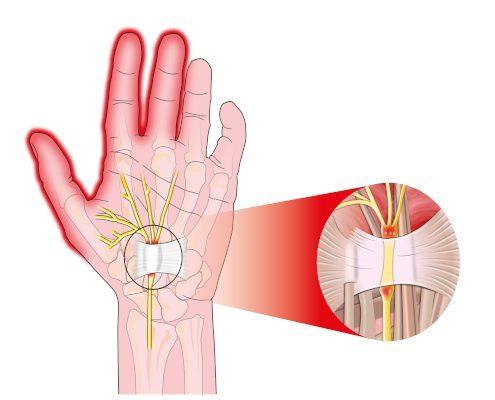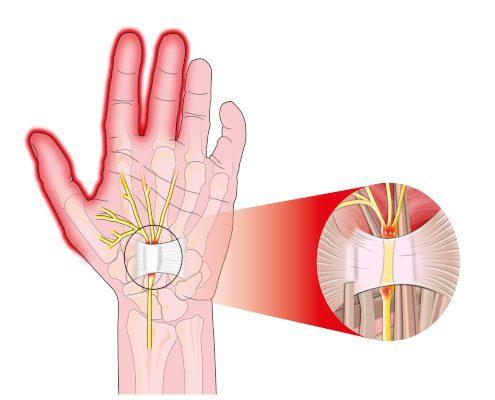

Have you felt a numbness or tingling in your wrists or fingers lately? This could be early warning signs of Carpal Tunnel Syndrome (CTS). If you experience a weakness in your wrist of the tendency to drop objects you should see a professional. If yo do not seek help, permanent nerve damage could occur.
How Does CTS Occur?
These symptoms can occur when the nerve in the carpal tunnel, which is a narrow passageway on the palm side of your wrist get compressed. Experts explain that this nerve actually sends signals to your hand, thumb, middle-, index and part of your ring finger. Repetitive hand motions can lead to CTS. A wrist fracture and inflammation due to rheumatoid arthritis can narrow that tunnel and irritate the nerve. Smoking, obesity, hight salt intake and not enough exercise may also increase the risk of CTS.
What You Can Do To Prevent CTS
Experts agree there are some things you can do to minimize stress on your writs or hands. They suggest relaxing your grip. Try hitting the keys of your keyboards not as hard. Take frequent breaks, if possible. Also keeping your keyboard at elbow height or a little bit lower can help take stress of your wrists. Keeping your hands and wrists warm at work and changing your mouse or keyboards, if they feel uncomfortable, are other ways you can help your hands and wrists. Treating conditions such as diabetes, high blood pressure, and arthritis may also reduce the risk for developing CTS.
